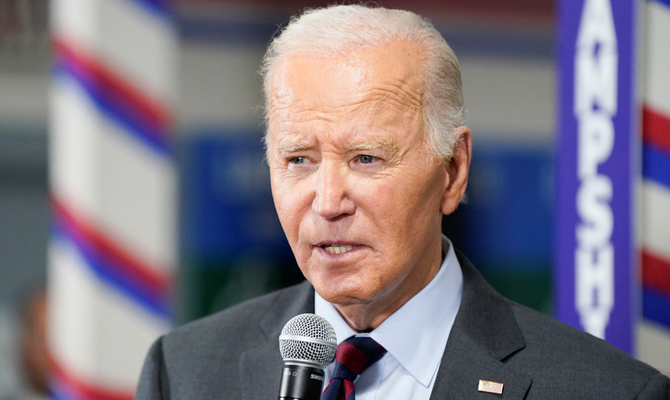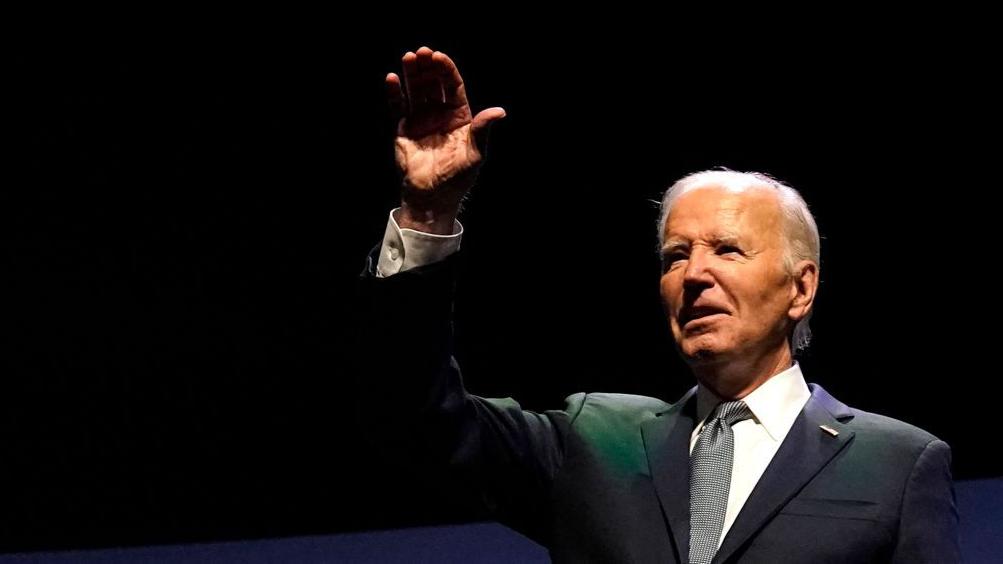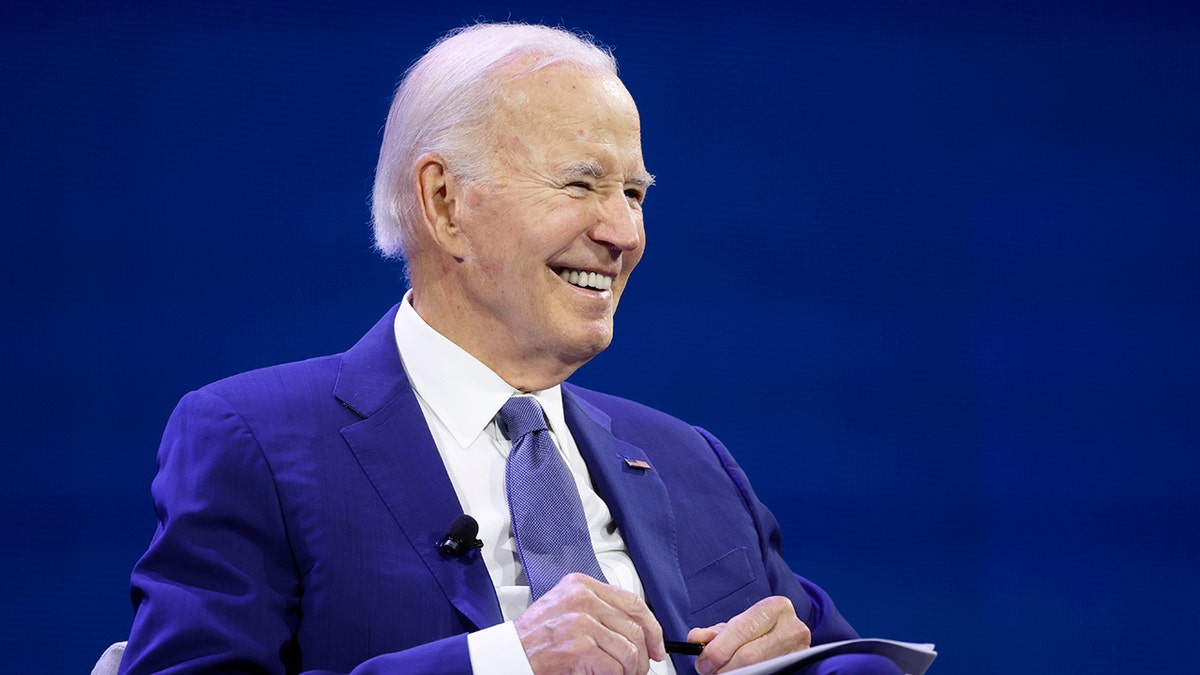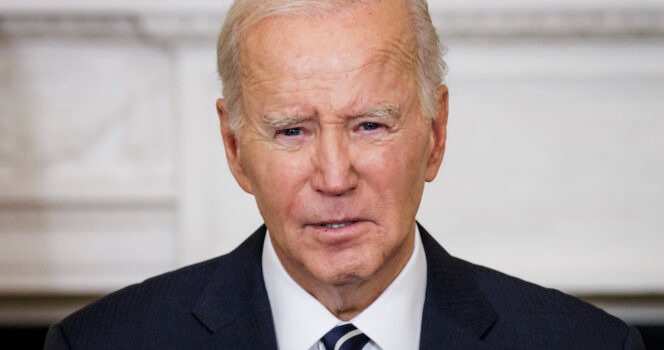Former U.S. President Joe Biden has recently stated that despite stepping back from formal political leadership, he continues to receive calls from world leaders and U.S. lawmakers seeking his informal counsel. These comments, made during a professional convention in San Diego, have drawn public attention and renewed discussions about the role of former presidents in international and domestic political discourse.

Remarks at the SHRM Conference
On July 8, 2025, Joe Biden appeared at the Society for Human Resource Management (SHRM) Annual Conference in San Diego, California. During a conversation with SHRM President Johnny C. Taylor Jr., Biden addressed a wide range of topics, including his continued engagement with global and domestic leaders.
“I’m getting calls… from a number of European leaders asking me to get engaged,” Biden said during the session. “I’m not [getting involved], but I’m giving advice. Because things are different.” These remarks, which were captured in video clips shared on social media platforms, suggested that although he is no longer in office, Biden remains active as an informal advisor.

A Longstanding Global Network
Biden’s assertion of ongoing conversations with foreign leaders may reflect his decades of experience in U.S. and international politics. As a former chair of the Senate Foreign Relations Committee, Vice President under President Barack Obama, and President from 2021 to 2025, Biden cultivated relationships with global counterparts over many years.
In the video clip from SHRM’s event, Biden emphasized the importance of American leadership in global affairs. “If America doesn’t lead the world, who can?” he asked. “Not because of power, but because of the ability to put things together.” While he did not name any specific world leaders or countries, Biden’s comments were interpreted by some analysts as a reflection of his longstanding ties with European allies.

Domestic Engagements Continue
In addition to discussing international affairs, Biden noted that he still holds conversations with lawmakers from both major U.S. political parties. “I’m dealing with a lot of Democrats and Republican colleagues,” he said. “Not because they think I have the answer, just to bounce things off me.”
Such interactions are not uncommon for former presidents, many of whom continue to provide private counsel or public advocacy after leaving office. Historically, former presidents like George W. Bush and Bill Clinton have remained engaged through philanthropic initiatives, public speaking, and informal advising.
Policy Challenges During His Presidency
During his time in office, Biden faced significant domestic and international challenges. These included managing the COVID-19 pandemic recovery, addressing rising inflation, dealing with energy price volatility, and formulating immigration policies.
According to data from the U.S. Bureau of Labor Statistics (BLS), inflation rates rose sharply in 2021 and 2022 due to pandemic-related supply chain disruptions, global economic instability, and increased consumer demand. However, inflation began to moderate toward the end of Biden’s term, reflecting actions by the Federal Reserve and the administration’s policy measures.
On the energy front, gas prices spiked during 2022 due in part to geopolitical tensions, including the Russia-Ukraine conflict, which disrupted global energy markets. The U.S. Energy Information Administration (EIA) reported that prices gradually decreased in 2023 and 2024 as supply chains adjusted and strategic reserves were tapped.
Immigration remained a central issue throughout Biden’s administration. Reports from the U.S. Department of Health and Human Services Office of Inspector General (OIG) in 2023 raised concerns about vetting practices for sponsors of unaccompanied minors. In response, the administration implemented stricter background checks and oversight to better safeguard children in government custody.

Oversight and Accountability
Biden’s presidency was also marked by political oversight and investigations. The impeachment of Homeland Security Secretary Alejandro Mayorkas by the House of Representatives occurred in early 2024, largely focused on border security policies. However, the Senate later dismissed the charges, ending the proceedings.
Separately, Biden’s son, Hunter Biden, faced legal scrutiny on tax and firearms charges. These matters were pursued by federal prosecutors and are currently pending in the judicial system. President Biden has publicly stated that he respects the independence of the Department of Justice and has refrained from commenting on the details of ongoing legal proceedings.
Another issue that drew public attention was the use of autopen signatures to approve official documents. While critics questioned the practice, the Congressional Research Service (CRS) notes that the use of autopen for signing legislation is legally permitted and has precedent in multiple administrations.

Public and Political Reactions
Biden’s comments at the SHRM conference received mixed responses. Supporters viewed his ongoing engagement as consistent with his decades-long commitment to public service and diplomacy. Others questioned whether such influence continues to carry significant weight, especially as he steps away from active politics.
Political analysts emphasized that it is not unusual for former U.S. presidents to maintain informal advisory roles. “Presidents often retain close contacts in both international and domestic spheres,” said one senior fellow at a Washington-based think tank. “Their experience makes them valuable informal advisors, even when out of office.”
Role of Former Presidents in Global Affairs
Former presidents often play meaningful roles after leaving office. For example, Jimmy Carter became a prominent figure in international diplomacy and human rights work through The Carter Center. Similarly, Barack Obama has remained active in leadership development and global engagement through the Obama Foundation.
These examples underscore a broader trend where former leaders leverage their experience to contribute to public discourse, whether through philanthropy, speaking engagements, or private counsel.
Conclusion
Joe Biden’s recent remarks suggest that he continues to see himself as a contributor to public life, albeit in a more informal capacity. While the full scope of his current involvement with world leaders remains private, it is not uncommon for former presidents to serve as unofficial advisors or thought leaders.
His continued engagement reflects a tradition of American presidents remaining active voices on issues of national and international importance, even after their official terms have ended.
Sources
-
U.S. Bureau of Labor Statistics (BLS) – https://www.bls.gov
-
U.S. Energy Information Administration (EIA) – https://www.eia.gov
-
U.S. Department of Health and Human Services, Office of Inspector General (OIG) – https://oig.hhs.gov
-
Congressional Research Service (CRS) – https://crsreports.congress.gov
-
C-SPAN Video Archives – https://www.c-span.org
-
Society for Human Resource Management (SHRM) – https://www.shrm.org

